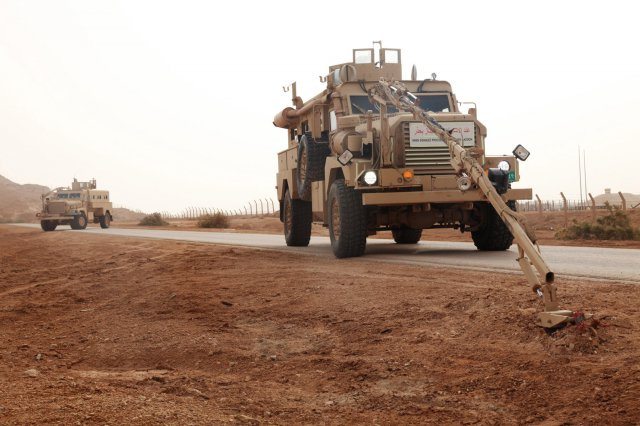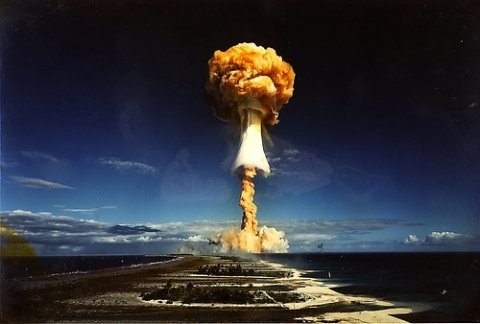Although violence in Iraq has decreased, the threat of improvised explosive devices still exist. Soldiers of A Company, Brigade Special Troops Battalion, 4th Advise and Assist Brigade, 3rd Infantry Division, are helping their Iraqi Army counterparts learn how to defeat this threat in an effort to make the streets of Anbar safer.
After working side-by-side with members of the 7th Field Engineering Regiment, 7th Iraqi Army, or IA, Division for the past 11 months, U.S. Soldiers put the 7th FER Soldiers to the test and hosted a culminating exercise at Al Asad Air Base, May 17-19, 2011, that focused on route-clearing procedures.
“We’re not going to be here for too much longer,” said Staff Sgt. Raul Gutierrez, a combat engineer with A Co. “So, it’s important for them to understand these route clearance techniques as they will soon take on this critical mission by themselves.”
Gutierrez and his fellow Soldiers hid simulated explosives along a road and instructed the Iraqi troops to detect, interrogate and properly report the bomb findings up to their higher headquarters.
“We used the environment — twigs, trees branches, trash — to mask the IEDs (improvised explosive devices),” said Spc. Shawn Leblanc, a member of Co. A, BSTB. 4th AAB, 3rd Inf. Div. “Everything was pretty much hidden very well. It made for very realistic training.”
Leblanc added that they tried to make the training as complex as possible, and the IA Soldiers located all IEDs but one.
“They have a very keen eye,” he said. “What may look normal to us is not necessarily normal to them. They know how the IEDs are placed. They see this and deal with this on a daily basis.”
Leblanc, who deployed to Iraq in 2007, said the Iraqi security forces have drastically improved their abilities to clear routes.
“We did some partnered route clearance on my last deployment,” he said, “but they had a lot to learn. This rotation it seems they have picked up a lot of things. They are more confident. I think they’ve progressed very well.”
Reflecting back on his first deployment in 2003, Gutierrez agreed Leblanc that the IA has improved, and said they are ready to take the reins as the U.S. approaches its expected withdrawal deadline.
“In ’03, they were just driving around and getting hit, and now they know how to approach (IEDs) and what to look for,” he said. “It feels good to be able to come back and see this big change. It’s definitely an accomplishment to know that I’ve had a hand in making a difference.”
“They are in it to win it,” he said. “They want to take charge, and we were able to help them do that. We’re the same people, from different places, fighting for the same cause.”











